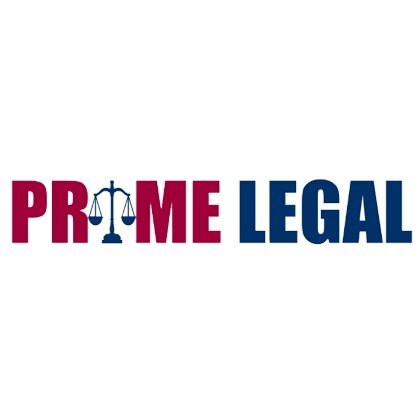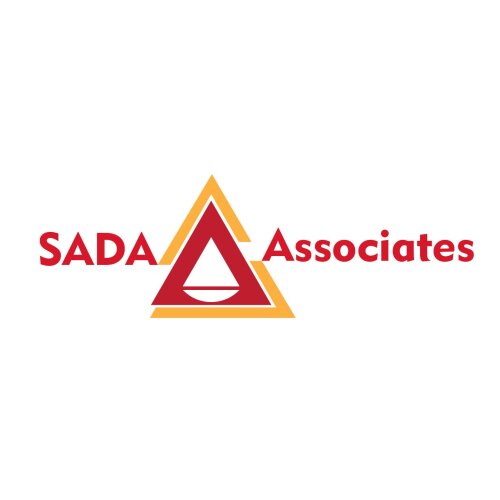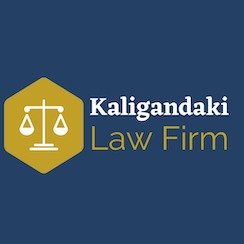Best Sanctions & Export Controls Lawyers in Kathmandu
Share your needs with us, get contacted by law firms.
Free. Takes 2 min.
List of the best lawyers in Kathmandu, Nepal
About Sanctions & Export Controls Law in Kathmandu, Nepal
Sanctions and export controls are legal measures used by countries to regulate and restrict the movement of goods, technologies, services, and funds across borders. In Kathmandu, Nepal, these laws and regulations play a crucial role in ensuring compliance with international treaties, protecting national security, and supporting the country’s foreign policy objectives. The government monitors and controls certain exports and imports to prevent illegal trade, protect sensitive technologies, and comply with international obligations like United Nations sanctions. For businesses and individuals involved in international trade or transactions, understanding and complying with sanctions and export control laws is essential to avoid legal complications.
Why You May Need a Lawyer
Navigating sanctions and export controls regulations in Kathmandu can be complex due to constantly evolving rules and differing international requirements. You may need a lawyer in several situations, such as:
- Engaging in cross-border trade or establishing trade relationships with entities in sanctioned countries
- Facing an investigation or enforcement action related to suspected violations of export controls or sanctions
- Advising on the classification of goods, technologies, or services under current export control laws
- Negotiating contracts with foreign parties to ensure compliance with applicable restrictions
- Seeking guidance on obtaining the correct permits and licenses for exporting or importing controlled items
- Handling assets or funds that may be subject to seizure or blocking under sanction regimes
- Responding to requests from national or international bodies regarding compliance matters
A skilled lawyer can help you mitigate risks, navigate bureaucratic processes, safeguard your business interests, and ensure you do not inadvertently violate local or international laws.
Local Laws Overview
Nepal’s sanctions and export controls regime is shaped by a combination of domestic legislation, international commitments, and administrative regulations. Key aspects include:
- Import and Export (Control) Act, 1957: Governs the import and export of specified goods and allows the government to prohibit or restrict trade of certain items for security, public interest, or international compliance reasons.
- Foreign Exchange Regulation Act, 1962: Controls the movement of currency and foreign exchange transactions, crucial when complying with financial sanctions.
- United Nations Sanctions: Nepal, as a UN member, enforces sanctions regimes directed by the Security Council, including asset freezes, trade embargoes, and travel bans against specified individuals, organizations, and countries.
- Customs Act, 2007: Supports enforcement by monitoring cargo at entry and exit points, with provisions for penalties if illegal goods or restricted items are discovered.
- Ministry of Industry, Commerce, and Supplies: Issues export and import licenses and supervises regulatory compliance, including adherence to obligations under international treaties such as the World Trade Organization agreements.
- Banking and Financial Institutions Act: Regulates financial transactions, reinforcing compliance with international financial sanctions and anti-money laundering efforts.
Combined, these laws require diligence in all cross-border dealings, as violations can bring severe penalties, business disruption, or reputational harm.
Frequently Asked Questions
What are sanctions and export controls?
Sanctions are legal restrictions put in place to limit trade, financial transactions, or contacts with certain countries, organizations, or individuals. Export controls are governmental regulations that restrict or require licensing for the export of specific goods, technologies, or services for reasons like national security, foreign policy, or international agreements.
Which government authorities oversee sanctions and export controls in Kathmandu, Nepal?
Key authorities include the Ministry of Industry, Commerce, and Supplies, Department of Customs, Central Bank (Nepal Rastra Bank), Ministry of Foreign Affairs, and relevant licensing bodies. These departments handle implementation, monitoring, and enforcement.
Do I need a license to export goods from Nepal?
Certain goods, technologies, and services are controlled and require export licenses. These controls are primarily for sensitive items such as dual-use goods, weapons, chemicals, and certain agricultural products. Consult with the Ministry of Industry, Commerce, and Supplies to determine if your goods require licensing.
What are the penalties for violating sanctions or export controls in Nepal?
Penalties may include fines, confiscation of goods, business license revocation, asset freezes, or criminal prosecution depending on the severity of the offense and the relevant law breached.
How can I check if a country or person is under sanction?
You should review lists published by the United Nations and the official gazettes or notices issued by the Government of Nepal, as these documents specify individuals, entities, and countries subject to sanctions.
Are certain destinations considered higher risk for export from Nepal?
Yes, countries or entities subject to UN sanctions or regarded as destinations with a high risk of diversion or misuse of goods are higher risk. Conduct thorough due diligence before engaging in trade with such destinations.
What documentation is required for compliance with export controls?
Documentation may include export licenses, end-user certificates, contracts, invoices, bills of lading, customs declarations, and records proving goods’ lawful origin and final destination.
What should I do if I suspect a breach of sanctions or export controls?
Immediately seek legal advice, suspend any related transactions, and notify the relevant government authorities. Proactive disclosure may mitigate penalties.
Can sanctions and export control violations affect my business reputation?
Yes, violations can damage your reputation, cause loss of business partnerships, disrupt supply chains, and even bar you from global markets. Compliance is crucial.
How often do the rules and lists change?
Rules, sanctioned entity lists, and export control measures can change frequently, often in response to international developments. Regularly check official updates and consult legal experts for current information.
Additional Resources
If you need further information or guidance, these resources can be helpful:
- Ministry of Industry, Commerce, and Supplies - for licensing and regulatory queries
- Department of Customs - for matters relating to the import and export of goods
- Nepal Rastra Bank - for foreign exchange and financial sanctions compliance
- Ministry of Foreign Affairs - for up-to-date information on international sanctions
- UN Sanctions Committees - for lists of sanctioned countries, individuals, and entities
- Relevant chambers of commerce and trade associations
- Local legal societies and bar associations for referrals to qualified lawyers
Next Steps
If you are engaged in international trade, financial transactions, or any business potentially affected by sanctions or export controls in Kathmandu, it is critical to stay informed and compliant. Here are suggested steps:
- Assess your business activities to identify areas of potential risk
- Regularly review government notifications, official gazettes, and international updates regarding sanctions and controlled goods
- Consult with an experienced lawyer specializing in trade, customs, and sanctions law for tailored advice
- Implement internal compliance programs, including staff training and due diligence procedures
- Document all transactions and correspondence related to cross-border deals
- Reach out to relevant government authorities for clarification or advance licenses when needed
- Respond promptly and transparently to any government inquiries or investigations
Seeking legal guidance early can help you avoid pitfalls, minimize liability, and maintain the trust of partners at home and abroad. Gather all your documentation, clearly outline your objectives, and consult a knowledgeable professional before making any decisions involving sanctions or export controls.
Lawzana helps you find the best lawyers and law firms in Kathmandu through a curated and pre-screened list of qualified legal professionals. Our platform offers rankings and detailed profiles of attorneys and law firms, allowing you to compare based on practice areas, including Sanctions & Export Controls, experience, and client feedback.
Each profile includes a description of the firm's areas of practice, client reviews, team members and partners, year of establishment, spoken languages, office locations, contact information, social media presence, and any published articles or resources. Most firms on our platform speak English and are experienced in both local and international legal matters.
Get a quote from top-rated law firms in Kathmandu, Nepal — quickly, securely, and without unnecessary hassle.
Disclaimer:
The information provided on this page is for general informational purposes only and does not constitute legal advice. While we strive to ensure the accuracy and relevance of the content, legal information may change over time, and interpretations of the law can vary. You should always consult with a qualified legal professional for advice specific to your situation.
We disclaim all liability for actions taken or not taken based on the content of this page. If you believe any information is incorrect or outdated, please contact us, and we will review and update it where appropriate.

















